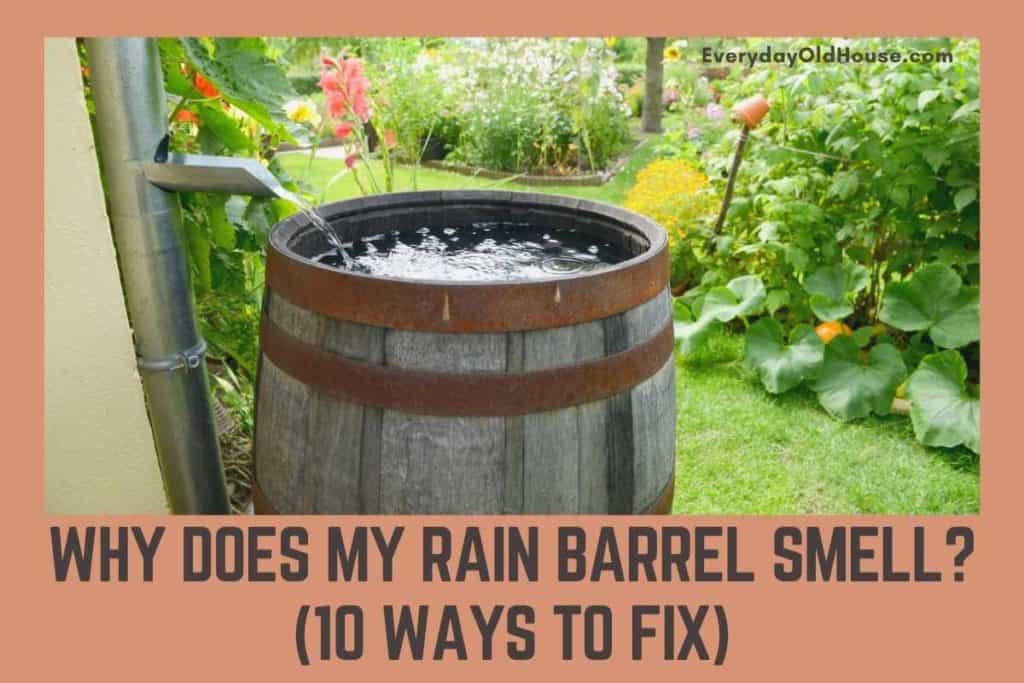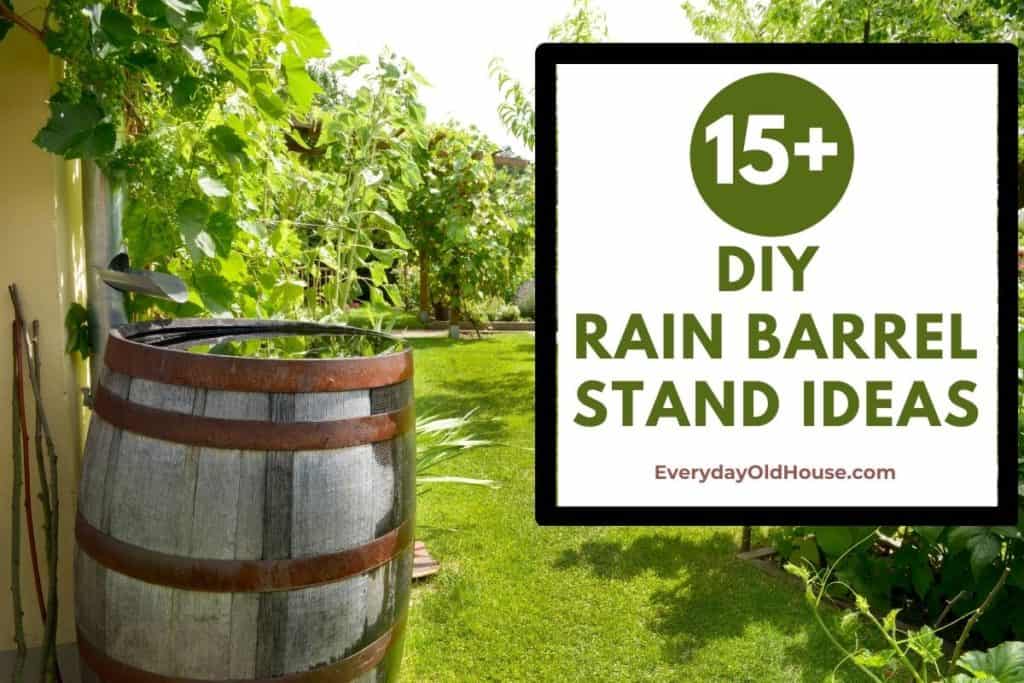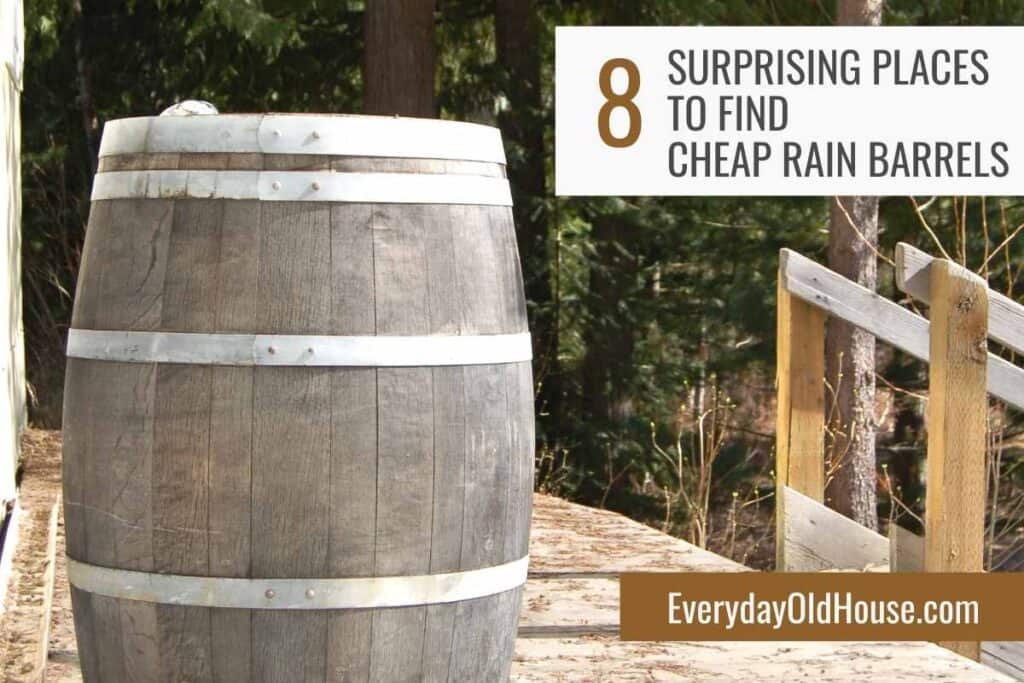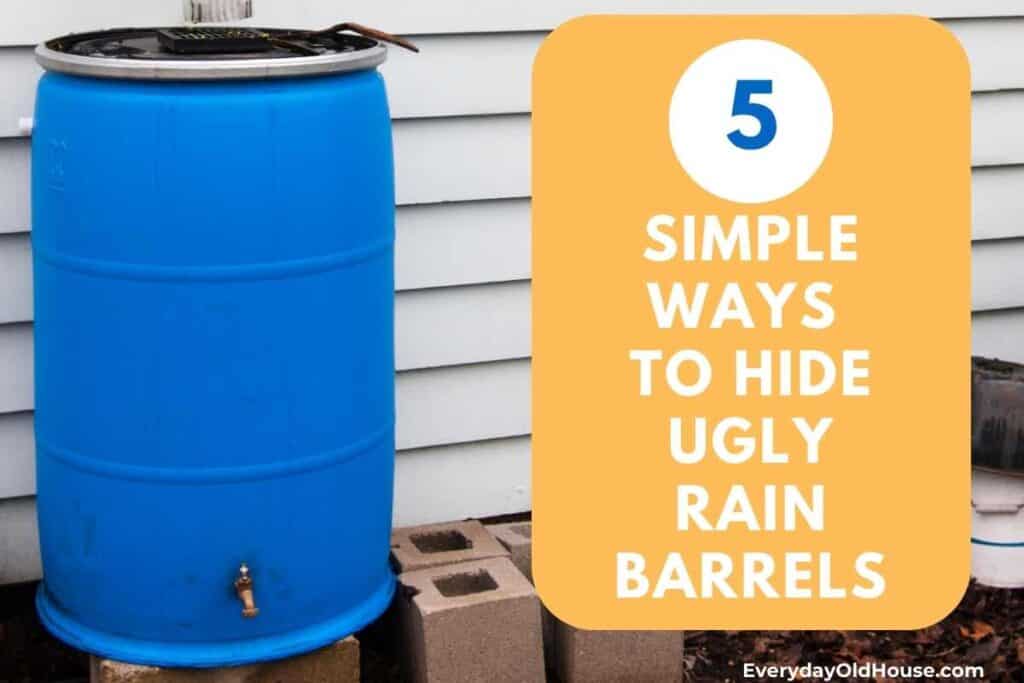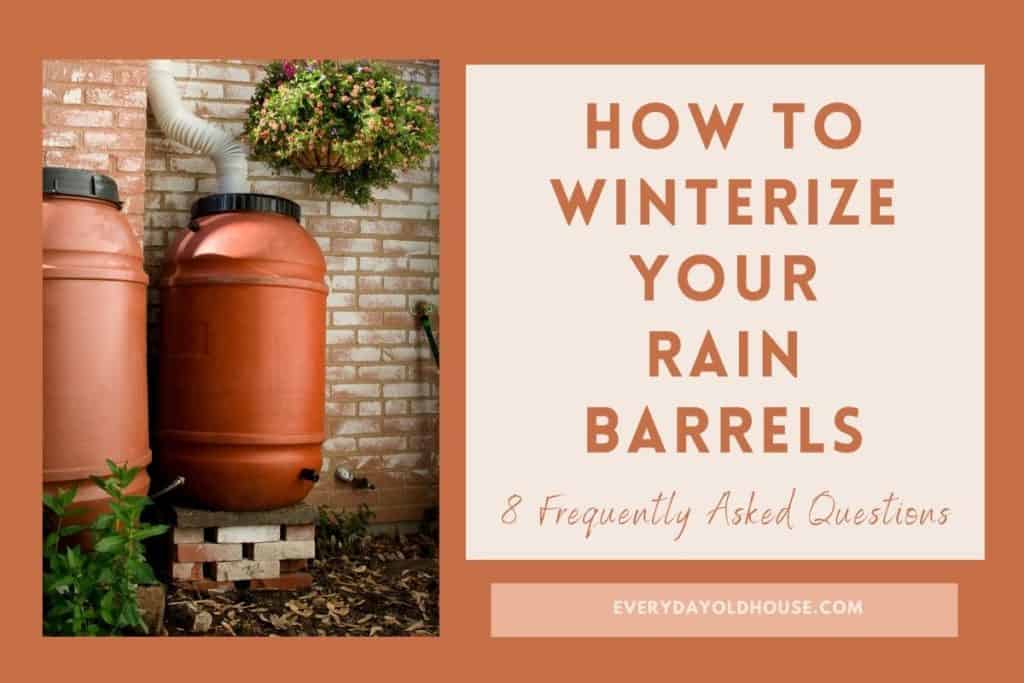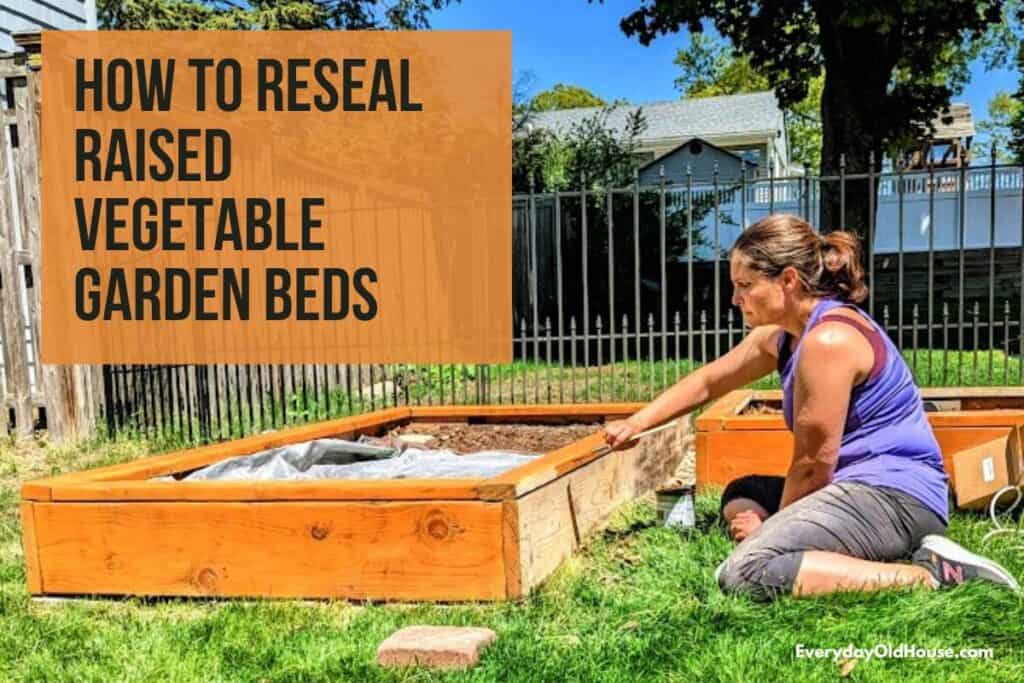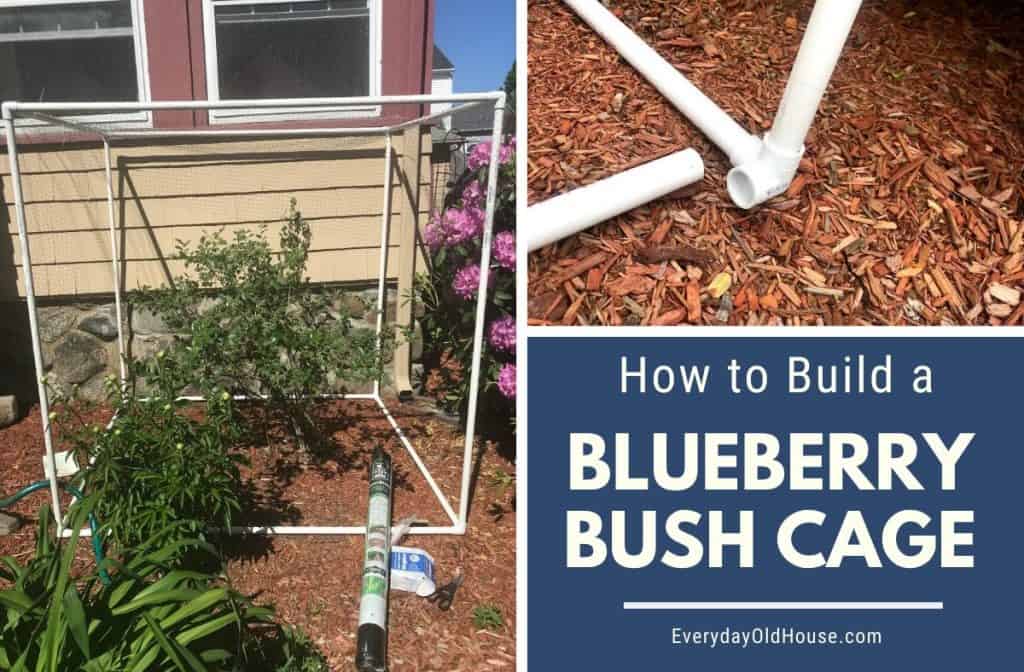Last Updated on January 6, 2024
As a homeowner and gardener, I’m often on the lookout for innovative yet inexpensive ways to care for my space while lessening my environmental impact – like rain barrels. However, while harnessing rain water seems like an ingenious solution, it does have some downsides. Before you clear a spot in your yard to make room for a new rain barrel, first consider these 8 disadvantages of rain barrels to make sure they are worth their while.
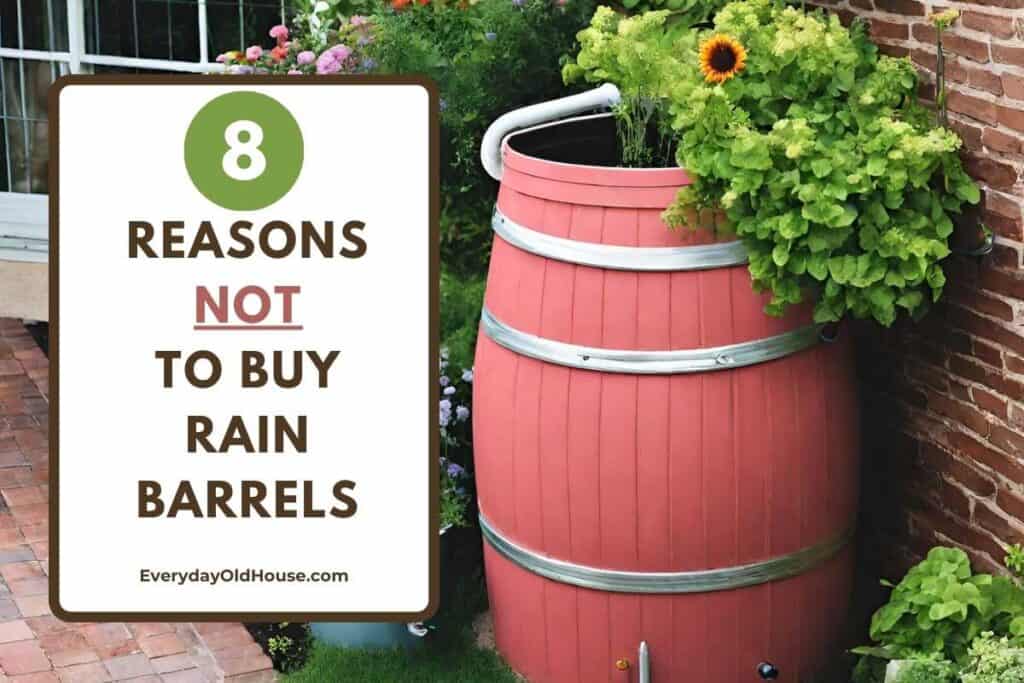
Disadvantages of Rain Barrels
After debating the pros and cons of rain barrels, I’ll admit that we ultimately bought 2 rain barrels and haven’t looked back. The advantages outweighed the disadvantages of rain barrels for your lifestyle and goals.
However, for some homeowners, rain barrels are not worth it. And here’s a few reasons why…..
1. Illegal
Some states either ban or restrict the use of rain barrels. So be sure to check with your local city, town (or homeowner association if appliable) before buying and installing a rain barrel.
According to Today’s Homeowner, the following states have some sort of restriction on rain water collection. Some areas may completely ban rain barrels, while others merely require filing a simple permit.
| Arkansas | Nevada | Texas |
| California | North Carolina | Utah |
| Colorado | North Dakota (permit required) | Virginia |
| Georgia | Ohio | Washington |
| Kansas (permit required) | Oregon | Wisconsin |
| Illinois | Rhode Island |
Be sure you don’t end up investing and setting up a rain barrel system, only to have deal with breaking the law and dealing with the consequences.
2. Unpredictable Water Collection
A significant disadvantage of rain barrels is the sporadic nature of rain water collection. Mother Nature don’t always cooperate with your plans.
During the rainy season, rain barrels quickly fill up (especially in heavy rains) leaving you with a surplus of collected rain water. Sounds great, right?
But here’s the irony… Your garden beds are getting a generous drink from the sky. It doesn’t need you and your rain barrels. (Hopefully the your rain barrels doesn’t overflow with water entering into your basement or crawl space).
Then during the dry season (or height of summer), when you need the water the most, there’s not enough rain and you’re left with empty barrels.
And thirsty plants.
Which forces you to rely on traditional water sources, like turning on the tap and adding cost to your water bill. Which was exactly what you were trying to avoid….
Add in Mother Nature cooperating less and less every year with extreme weather, precipitation amounts are becoming more and more unpredictable and inconsistent.
3. Yucky Algae
While effective at collecting rain water, rain barrels under the right (or wrong conditions) can inadvertently become breeding grounds for algae.
During the rainy season when rain barrels are contain much water and are used less, the stagnant water, coupled with sunlight, can impact water quality. The water transforms into a murky greenish hue filled that’s smelly and gross. Yuck.
This has happened to me. And personally, I just can’t bring myself to use this smelly rain water in my gardens, especially on my edible vegetables, fruits, and herbs. Luckily I found a few simple and inexpensive ways to fix.
Related Post
4. Hotbed for Mosquitos
In addition to accelerated algae growth, stagnant water in rain barrels also creates an ideal environment for pesky mosquitos.
Improperly maintained rain barrels impact water quality and can inadvertently create a breeding ground for mosquitoes.
Even a small amount of standing water in the lid, opening, or screen of the barrel can look incredibly cozy for female mosquitoes to set up house and lay their eggs.
It’s essential that your rain barrel has a tight-fitting lid and a fine-mesh screen that stops mosquitos from gaining access to the rain water. [Planting mosquito-repelling plants like citronella and peppermint around your rain barrel is an added bonus.]
Other Animals….
Mosquitoes aren’t the only animals attracted to rain barrels. If left uncovered or inadequately closed, small animals like slugs can view rain barrels as an opportunity for a cozy new home.
Or even worse than removing a slimy snail…. finding a drowned rodent who fell in while enjoying a nice cool drink. Yuck.
5. Insufficient Water Pressure
One of the toughest disadvantages of rain barrels that I have experienced is low water pressure.
In an ideal world, your rain barrel would be located adjacent to where you want to water (ex: garden bed). And your rain barrel would be elevated high enough to generate sufficient water pressure for a garden hose connected to the rain barrel spigot to reach its destination (or invest in a pump).
But for many homeowners, where you need to install your rain barrel (i.e. under a roof downspout) and its location relation to the water’s ultimate destination (i.e. near a garden bed) is not ideal.
And that leaves you manually filling watering cans and lugging a large amount of water to your plants.
Sure, it’s a great workout. And if you have kids, it is a great task to get them involved in gardening. But I speak from experience, watering plants from your rain barrel via a watering can becomes a daily chore that gets old fast
But some days, especially those really hot ones where you just want to sit and relax under the shade with a glass of lemonade, the convenience of turning on a sprinkler seems like a more appealing option than physical activity and a lower water bill.
Related Post
6. Water Consumption is a No-No
While I don’t think this is a huge disadvantage of rain barrels, it is important to understand that unlike tap water, rain water isn’t treated or filtered for human consumption.
Collected rain water can be a valuable resource, just not in your drinking glass.
Water your garden, fill up birdbaths, or even give your patio furniture, heck, even your car a wash. But unless you have a proper filtration system in place, do not drink water from the rain barrels. Stick with tap water and/or municipal water supplies.
Sidenote: Some experts warn against using rain barrel water with edible plants. Think pigeon droppings with elevated bacteria levels washing down from your roof and landing on your garden tomatoes…..
Personally, I’m comfortable with giving my edibles a good wash with tap water after picking to decrease the risk of bad bacteria ending up on my plate.
7. Less Savings Than Anticipated
On the surface, rain barrels can appear to be a cost-effective solution for watering your garden, but when you did into the numbers, the savings to your water bill isn’t as huge as you might think….
In a national survey by DC Urban Gardeners, a rain barrel lowered water bills by about $35 a month in the summer.
Not a heck of a lot of savings for a lot of lugging of gallons of water around a garden.
Depending on how much you spend on the initial cost of a rain barrel, it may take a few growing seasons to break even. While there are free or low-cost options to acquire a rain barrel, a store-bought barrel can run as much as $200. Plus, you probably need to buy additional equipment, such as downspouts and pumps.
Related Post
8. Aesthetics & Home Value
Ok, ok, you might consider this disadvantage of rain barrels a bit shallow. And I would agree to an extent. But I think some homeowners have a valid concern about the aesthetic impact of rain barrels on their property.
Let’s face it, those large blue food-grade barrels don’t scream curb appeal.
In certain real estate markets, visible rain barrels might be a factor that affects the perceived value of a property.
So, it’s important to strike a balance between the functional benefits of rain barrels and their visual impact, such as decorating or hiding it to blend into the landscape.
Related Post
Wrapping Up: Are Rain Barrels Worth it?
With all these disadvantages of rain barrels, the question arises: Are they truly a worthwhile investment for your property?
Installing rain barrels comes with its share of efforts. From manually lugging gallons of water to gardens to ongoing maintenance demands, rain barrels introduce a level of commitment. Plus, research indicates that the savings to your water bill isn’t that substantial.
However, rain barrels undeniably present invaluable environmental benefits, contributing to water conservation and fostering eco-friendly practices.
Ultimately, the answer on whether or not to buy a rain barrel should align with your environmental goals and lifestyle preferences. Good luck!
Related Posts
Want to be the first to know about new posts? Be sure to follow me on Pinterest, Facebook, Instagram or Twitter of even Etsy! Or better yet… Subscribe below!
My monthly (admittedly sometimes more, sometimes less….) emails are like receiving a unexpected letter from an old friend WITHOUT needing to put on your slippers and walk out to your mailbox…. See? I got ya, my friend!)
[Note: My posts are proudly connected to these amazing link parties full of DIY ideas and inspiration!]
